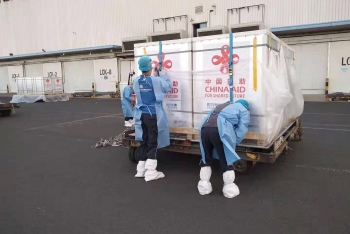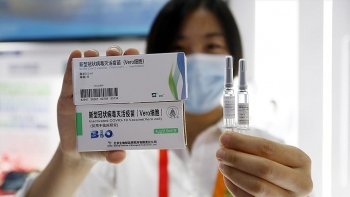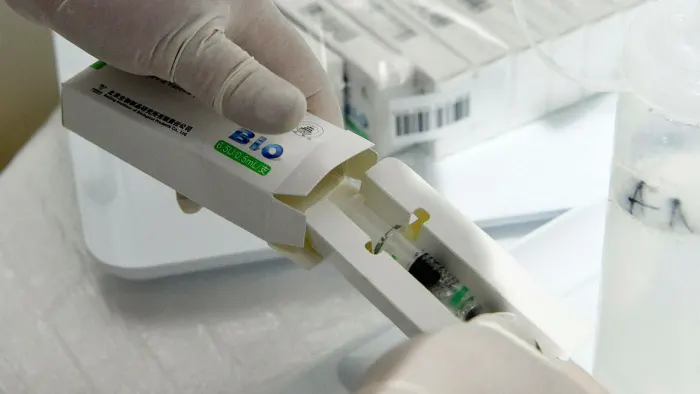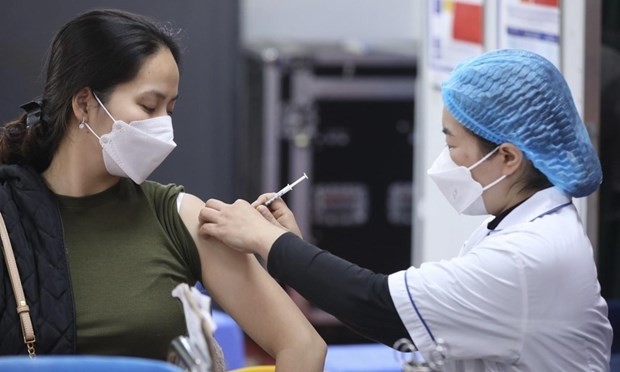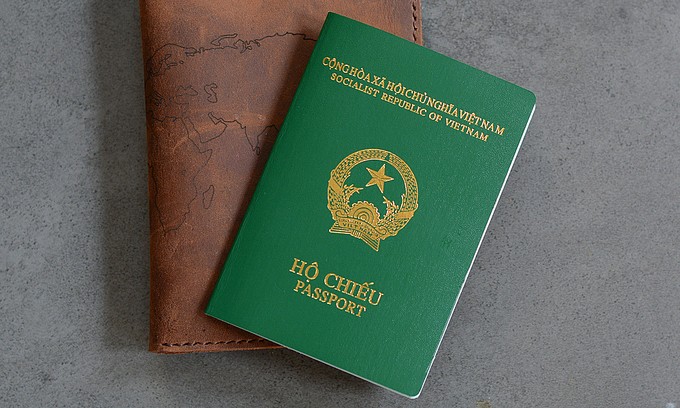What Do We Know about China’s Covid-19 Vaccines? Rumors and Truths
Sinopharm was given emergency approval by the World Health Organization (WHO) in May this year, and Sinovac in June.
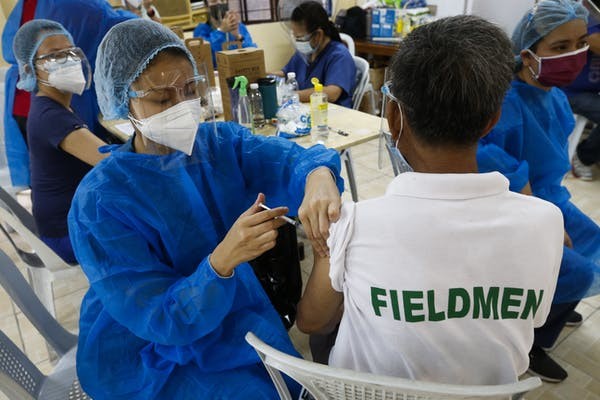 |
| The Sinovac and Sinopharm vaccines are being rolled out in more than 80 countries worldwide. Photo: AAP |
What type of vaccine are they?
Both are inactivated virus vaccines. This means they’re made from viral particles produced in a lab, which are then inactivated so they can’t infect you with COVID-19. Many other vaccines use similar platforms, including injectable polio, Hepatitis A and flu vaccines.
Both companies use similar technology, and the vaccines are mixed with an adjuvant, which is a substance added to vaccines to stimulate a stronger immune response.
According to Conversation, the vaccines contain many proteins the immune system can respond to, stimulating the production of antibodies to fight COVID-19.
Are they safe?
Side-effects common after most other COVID-19 vaccines, such as fever and fatigue, were found to be uncommon after Sinovac or Sinopharm.
Once vaccines are approved and being used in large populations, they’re continuously monitored for very rare side effects. No significant safety concerns have been identified amid Sinovac’s rollout in China, Brazil, Indonesia and Chile.
In saying that, there were very low numbers of adverse events identified overall, which would suggest substantial under-reporting.
For example, there were only 49 serious adverse events reported following 35.8 million Sinovac doses administered in China.
In a population of that size, we’d expect to see a larger number of illnesses and deaths recorded in the few weeks after vaccination just by coincidence alone, even if not causally related to the vaccine.
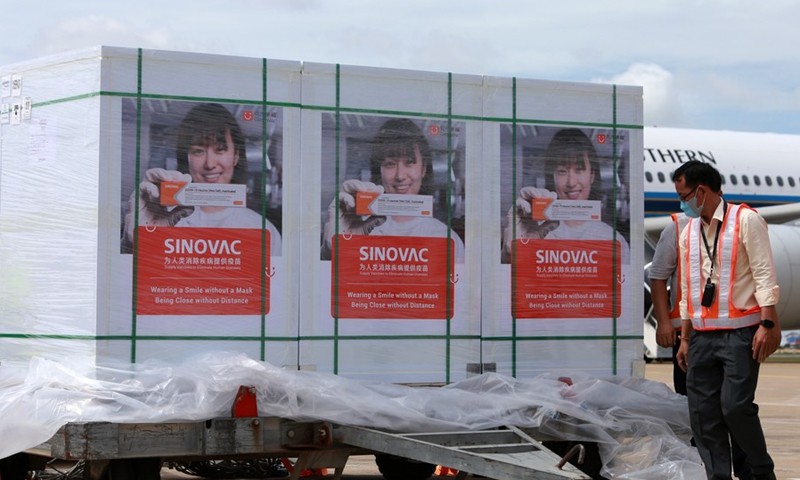 |
| A batch of China's Sinovac COVID-19 vaccines arrives at the Phnom Penh International Airport in Phnom Penh, Cambodia, July 31, 2021. Photo: Xinhua |
Only 79 people reported mostly mild adverse events following 1.1 million doses of Sinopharm in China, much lower than usual rates of adverse event reporting following immunisation.
A potential side effect of particular concern is what’s called “vaccine-associated enhanced disease”. This is a very rare side effect of some other vaccines which use a similar “inactivated” technology to the Sinopharm and Sinovac vaccines.
It occurs when a vaccinated person is exposed to the virus and develops a serious inflammatory condition, and results in them getting more severe symptoms than they would have without the vaccination.
This hasn’t been reported for these vaccines to date, although WHO recommends ongoing safety monitoring to identify any cases that occur.
What was their efficacy in clinical trials?
Sinovac’s efficacy at preventing symptomatic infection was 51% in Brazil, 67% in Chile, 65% in Indonesia, and 84% in Turkey. The differences in results may be due to different variants circulating in each country at the time and differences in the populations included in the studies.
Sinopharm’s efficacy in preventing symptomatic infection was 78% in UAE, Bahrain, Egypt and Jordan combined.
As with all the COVID-19 vaccines for which data are available, efficacy against the more severe outcomes is greater. Efficacy against hospitalisation for Sinovac in Chile, Brazil and Turkey was 85%, 100% and 100%, respectively.
However, few elderly people with underlying health issues were enrolled into these studies.
For Sinopharm, efficacy against hospitalisation was 79%, although few women were enrolled in these studies.
How effective are they in the real world?
Data published in April from a large real world study in Chile suggests Sinovac is 67% effective in preventing symptomatic COVID-19 infection. It’s effectiveness against hospitalisation was 85%, ICU admission 89%, and death 80%.
Sinopharm’s effectiveness against symptomatic infection in Bahrain was 90%, Conversation reported.
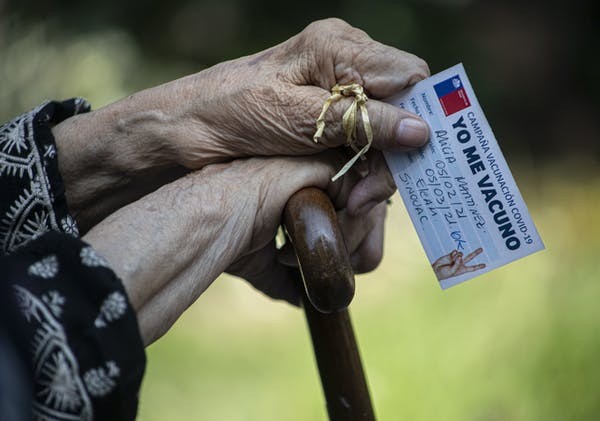 |
| Data from Chile’s rollout suggests Sinovac is 67% effective in preventing symptomatic COVID-19 infection. Photo: AAP |
Real data sparks concerns, rumors about China's vaccines effectiveness
However, it’s concerning there have been increases in infections in some countries where these vaccines have been extensively used, but detailed reports are not available.
For example, Seychelles has fully vaccinated 68% of its population, mostly with Sinopharm and the remainder with AstraZeneca.
Seychelles has recently experienced a surge in cases, which suggests the herd immunity threshold may not have been reached. The exact threshold for this is unknown but is influenced by variants in circulation, the number of people vaccinated, and the effectiveness of the vaccines.
Detailed epidemiological studies are required to investigate this but news reports suggest 20% of those hospitalised and 37% of new active cases are fully vaccinated.
| Bahrain and the United Arab Emirates have also achieved high vaccination coverage, predominantly with Sinopharm. They also experienced recent COVID-19 surges, and are offering a booster dose of Pfizer six months after two Sinopharm doses, because of concerns two doses of Sinopharm may not provide sufficient protection. However, there’s no data publicly available to determine whether this mix and match schedule is safe and produces a protective immune response. In Mongolia, the rapid vaccine rollout of four different vaccines, including Sinopharm, suggests initial good effectiveness but a recent increase in cases suggests short-term protection only, and perhaps little effect on transmission. There’s increasing concern about surging cases in Indonesia. Almost all health workers have been vaccinated with the Sinovac vaccine but some are now developing severe disease. Chile has also achieved high vaccine coverage, mostly with Sinovac. Around 75% of the adult population has received one dose, and 58% two doses. Despite this, a current surge in infections and consistent high numbers of deaths has prompted a blanket lockdown across the capital, Santiago. The spread may be related to the more transmissible Gamma variant, which first emerged in Brazil. However, in a small town of 45,000 in Brazil, very high vaccination coverage with Sinovac of 95% of adults, reportedly decreased symptomatic infections by 80% and deaths by 95%. There’s currently no data on how effective Sinopharm is against any variant of concern despite its use in more than 50 countries. For Sinovac, effectiveness against symptomatic infection with the Alpha and Gamma variants in Chile was 67%. In Brazil, with circulation of the Gamma variant, one pre-print study suggested effectiveness against symptomatic infection was 42%. |
Both vaccines are effective against severe COVID-19.
However, it is critical that researchers and health authorities determine vaccine effectiveness against variants and their effect on transmission, and their safety profiles. For countries that have community transmission this includes “vaccine-associated enhanced disease”.
As for any vaccine, we also need to understand how effective these vaccines are in older people, adolescents, pregnant women and immunocompromised groups, and how long protection lasts.
Global reach
As reported by Nature, China’s vaccines have already catalysed immunization campaigns in more than 40 countries. The country aims to produce between three and five billion doses this year, and more may come from manufacturing deals with other countries, such as the UAE, which is making a version of Sinopharm’s Beijing vaccine, called Hayat-Vax.
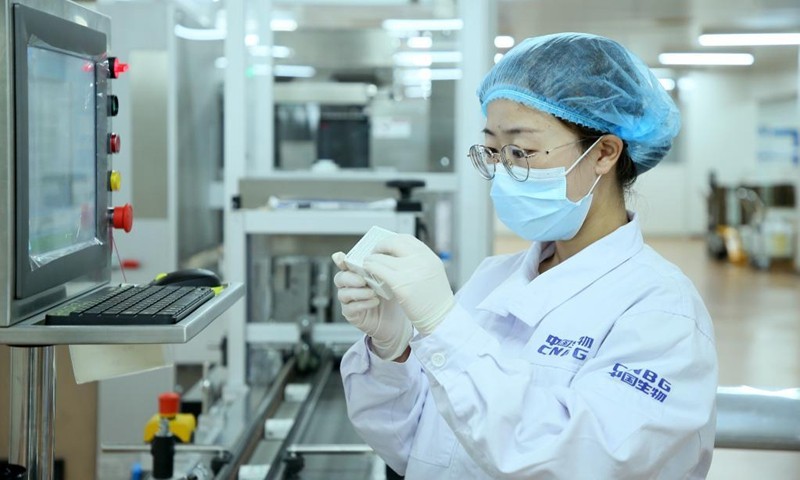 |
| A staff member checks the packaging of the Sinopharm vaccines in Beijing, capital of China, May 31, 2021. Photo: Xinhua |
For many countries, Chinese vaccines were the only accessible ones. In others — such as Brazil, Turkey and Chile, where many tens of millions of people have been vaccinated — they make up some 80–90% of doses administered. And researchers in these countries are beginning to see evidence of their effect in controlling the pandemic1.
Anecdotal reports hint at a low incidence of breakthrough infections, severe illness and death among fully vaccinated individuals in Brazil, says Esper Kallas, an infectious-diseases researcher at the University of São Paulo, Brazil. “Because we have access to CoronaVac, we’ve got to use it,” he says. “I’m not saying this will be the preferred vaccine in the future.”
WHO’s emergency-use listing of CoronaVac would further validate its use in countries that led with it. The decision to approve it would “provide confidence”, says Akova.
But many questions remain about the vaccines. Researchers want more data on how well they protect older people, children, pregnant women and immunocompromised groups. They also want to know what types of immune response the jabs trigger, how long protection lasts and how well they work against emerging variants. “The more data we have, the better,” says Kallas.
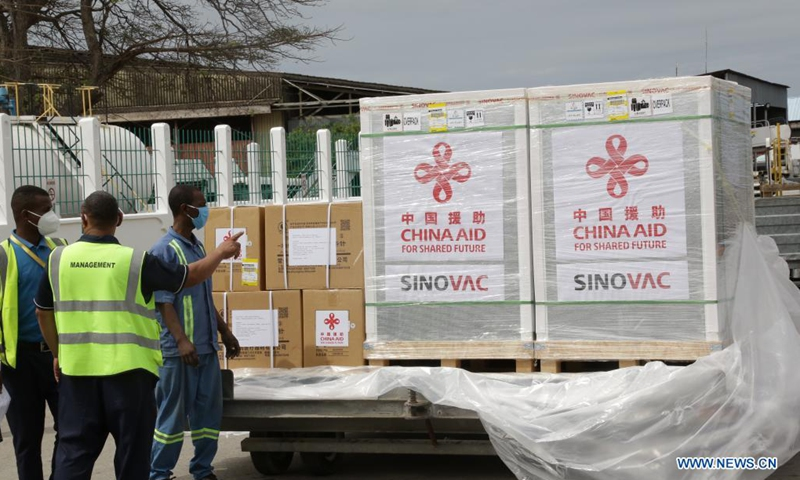 | China Pledges to Provide 2 billion Covid-19 Vaccine Doses to World This Year China will provide a total of two billion doses of Covid-19 vaccines to the world within the year, and donate $100 million to the COVAX ... |
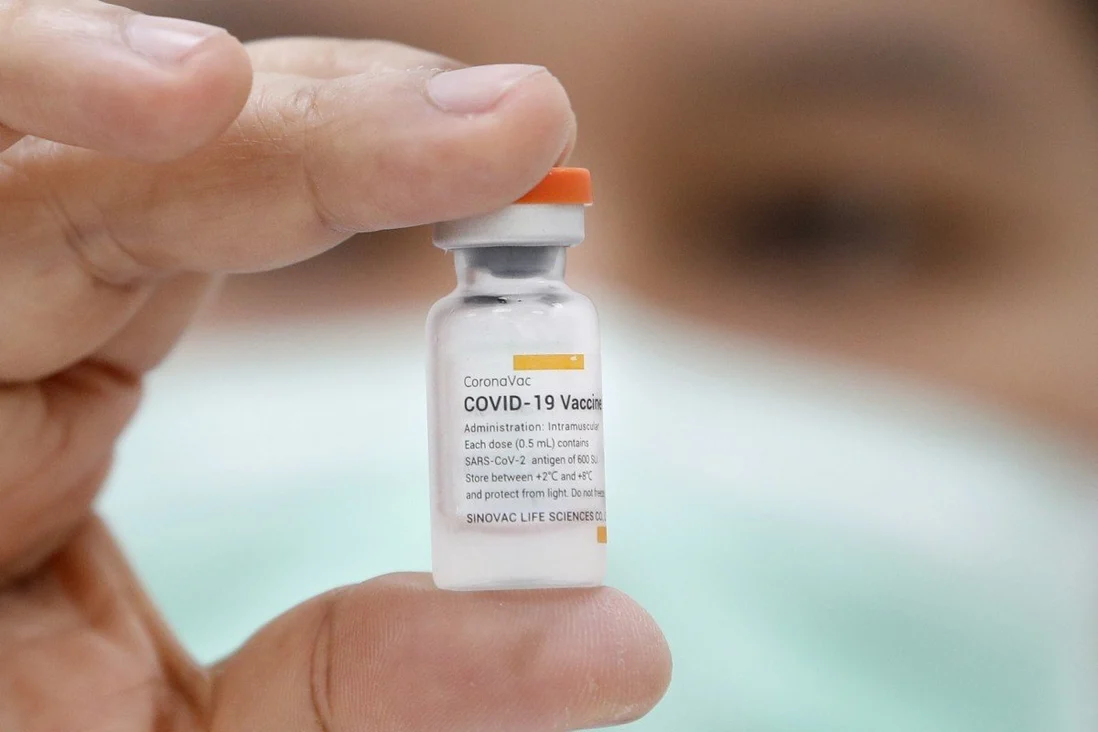 | WHO approves China's Sinovac Covid-19 vaccine for emergency use The World Health Organisation (WHO) on June 1 approved the Sinovac Covid-19 vaccine for emergency use - the second Chinese jab to receive the WHO's ... |
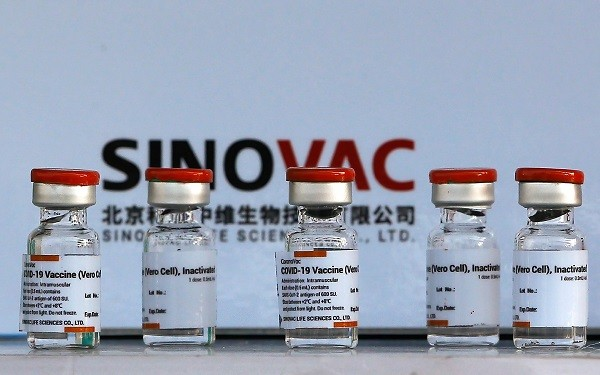 | Indonesian nurse dies 9 days after receiving Chinese vaccine An Indonesian nurse has died nine days after being injected with the Chinese vaccine made by Sinovac Biotech Ltd. |
Recommended
 World
World
India strikes back at terrorists with Operation Sindoor
 World
World
India sending Holy Relics of Lord Buddha to Vietnam a special gesture, has generated tremendous spiritual faith: Kiren Rijiju
 World
World
Why the India-US Sonobuoy Co-Production Agreement Matters
 World
World
Vietnam’s 50-year Reunification Celebration Garners Argentine Press’s Attention
Popular article
 World
World
"Will continue offering our full support to Indian govt": US FBI Director after Pahalgam attack
 World
World
"Great Leader": JD Vance Lauds PM Modi During His India Visit
 World
World
Trump’s Tariff Pause: A Strategic Move from “The Art of the Deal”?
 World
World

